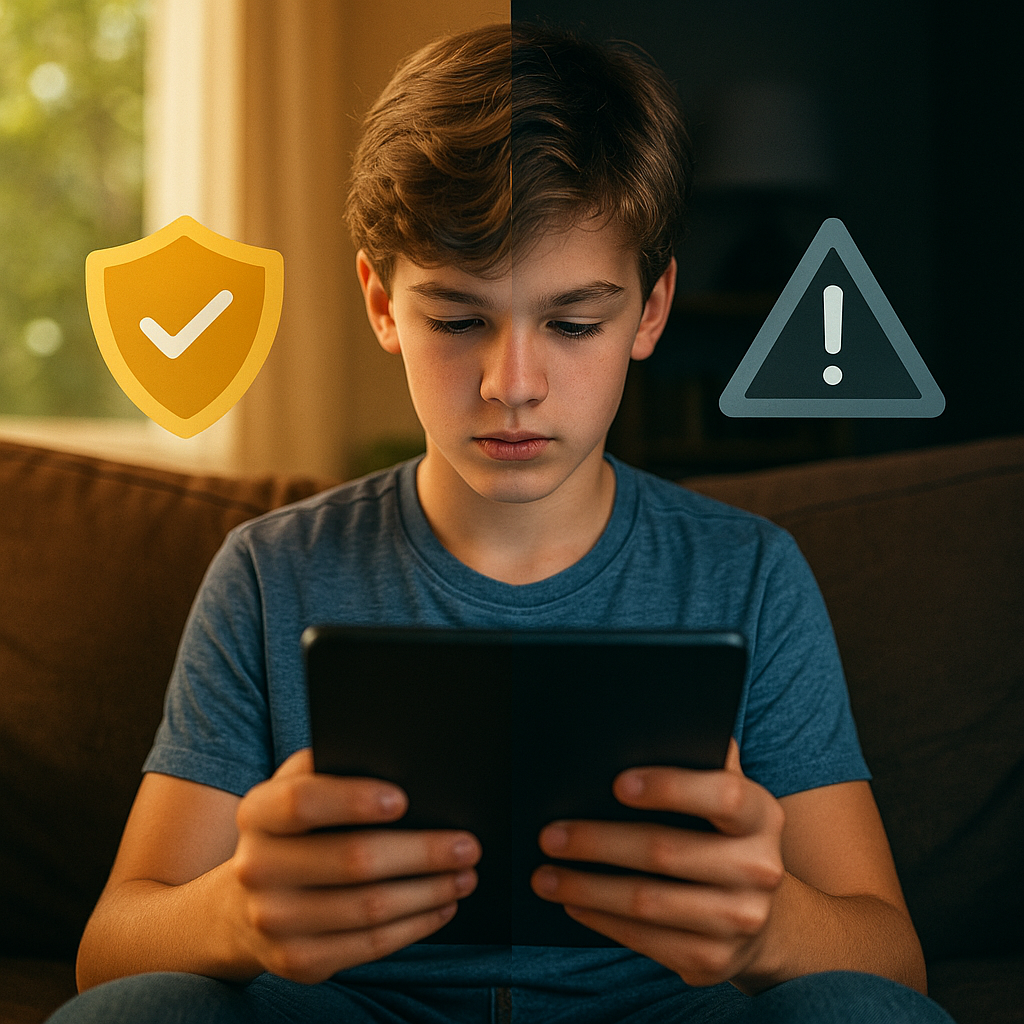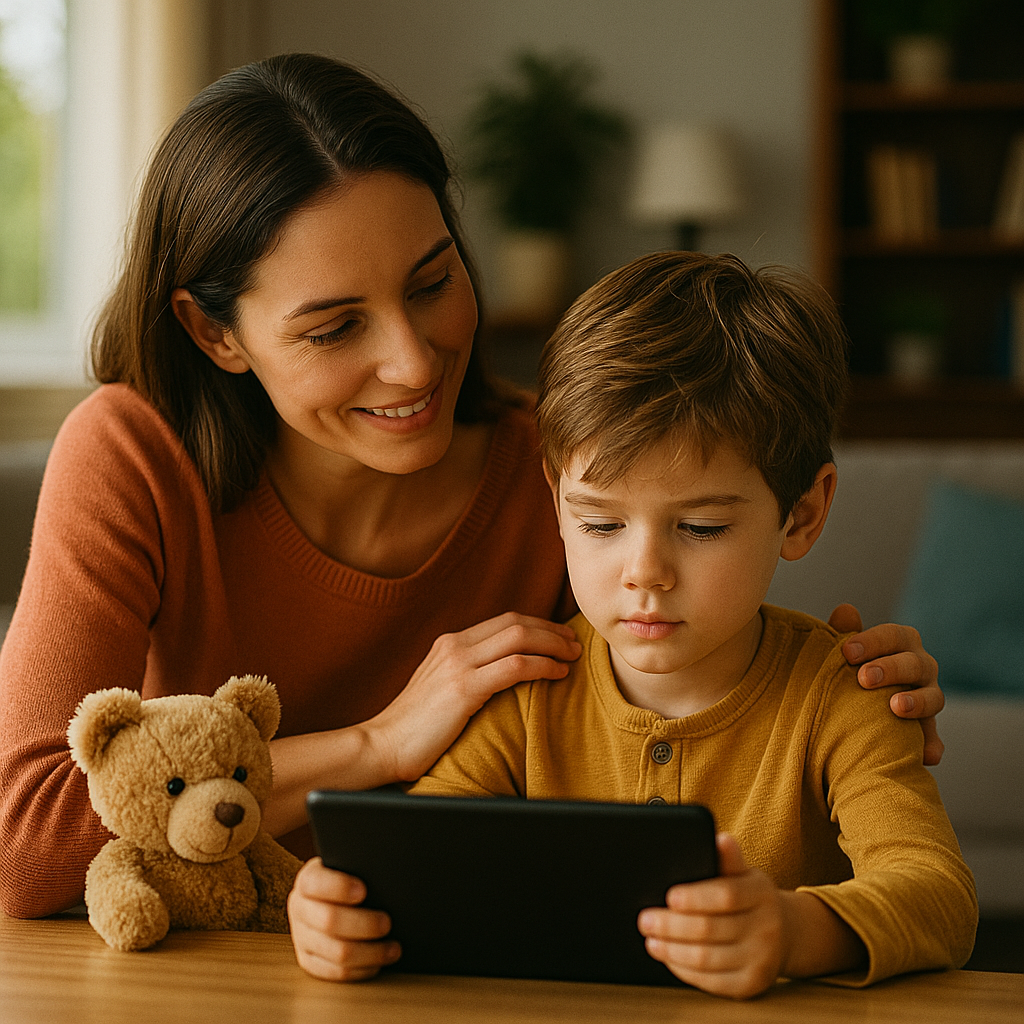
Published on InfoCandle.com
By Muhammad Nadeem
It’s 2025, and toddlers are doing something their parents never thought possible:
AI and kids. They’re having full-on conversations—with artificial intelligence.
From bedtime stories crafted by ChatGPT to asking Alexa what a “volcano” is, today’s kids are growing up with more than just toys and tablets. They’re growing up with AI as a playmate, a teacher, and sometimes even a friend.
Some parents are fascinated. Others? A bit unsettled.
But the big question lingers:
What happens when your child’s first best friend is a chatbot?
Welcome to the AI Nursery
Let’s picture a typical afternoon at home.
You’re working remotely. Your curious three-year-old asks for the fifth time, “Why is the sky blue?”
Instead of Googling or giving a half-baked answer, you say, “Ask ChatGPT!”
Your toddler speaks into a smart screen:
“Why the sky blue?”
And just like that, a cheerful voice delivers a playful, age-appropriate explanation—maybe even a song.
Is it helpful? Absolutely.
Harmless? Probably.
But also? Something completely new for humanity.
How AI Is Becoming a Toddler’s Co-Pilot

Today’s toddlers are using AI in ways we never imagined:
- Learning ABCs and phonics through voice-interactive games
- Listening to bedtime stories where they star as the hero
- Practicing manners—saying “please” and “thank you” to Alexa
- Getting comforting responses like, “It’s okay to feel sad today.”
These smart tools are interactive, responsive, and often soothing. But they also raise big developmental questions.
The Double-Edged Screen: Pros and Pitfalls
✅ The Upsides
- Instant answers to endless questions: “Why do cats purr?” is answered in seconds.
- Boosts speaking skills: Kids learn to ask clearly and confidently.
- Customized learning: AI adjusts based on age and vocabulary.
⚠️ The Concerns
- Less bonding time with real humans: Will a toddler turn to AI for comfort instead of their parents?
- Over-reliance on instant replies: Are kids missing out on imagination and trial-and-error?
- Not built for babies: Most AI isn’t designed with toddlers in mind—it can give confusing or overly advanced answers.
Child psychologists agree: AI can be a fantastic tool—but it shouldn’t replace human interaction.
“AI is great as a co-teacher,” says Dr. Lena Wu, a developmental psychologist.
“But emotional development still needs real hugs, real voices, and face-to-face connection.”
Can AI Be Too Smart for Little Ones?
Here’s the truth: Most AI, like ChatGPT, is built on adult-level information.
That means toddlers could hear responses that are too complex—or just miss the emotional tone entirely.
That’s why experts recommend parent-guided AI interaction. Think of it like screen time: helpful in doses, but not something you hand off entirely.
Real Parents, Real Voices
💬 “My son thinks ChatGPT is a magical uncle inside my phone. He once said, ‘I love you’ to it after learning about whales.” — Megan, mom of a 4-year-old
💬 “It honestly saved my sanity some days. But then my daughter started asking Alexa for hugs.” — Jay, dad of twin toddlers
💬 “We set a rule: AI for learning during the day, but only human voices at bedtime.” — Noor, preschool teacher & mom
Raising Emotionally Smart Kids in the Age of Smart Tech

Let’s face it—if you’re raising young kids today, you’re not just parenting.
You’re tech-curating.
Here are 3 simple ways to keep AI and kids balanced:
1. Use AI as a tool, not a substitute
Let it explain dinosaurs or sing songs, but save storytime and tough feelings for human connection.
2. Model kindness and curiosity
When you say “please” to Siri or thank Alexa, your child learns that tone and respect matter—even with machines.
3. Encourage early critical thinking
Ask your child: “Do you agree with what the AI said?”
It’s never too early to build healthy skepticism.
Are We Raising AI Natives?
For Millennials, it was the internet.
For Gen Z, smartphones.
For today’s toddlers?
It’s conversational AI—a tool they won’t remember living without.
And while that might sound scary, it doesn’t have to be. With a bit of awareness and a lot of love, AI and kids can grow together in a healthy way.
Because no matter how smart a chatbot gets, nothing replaces the comfort of a parent’s hug, the warmth of shared laughter, or the magic of a bedtime story told from memory.
📌 Stay curious with InfoCandle.com
We light the path where parenting, tech, and real life meet—without fear, fluff, or judgment.
People also read:


